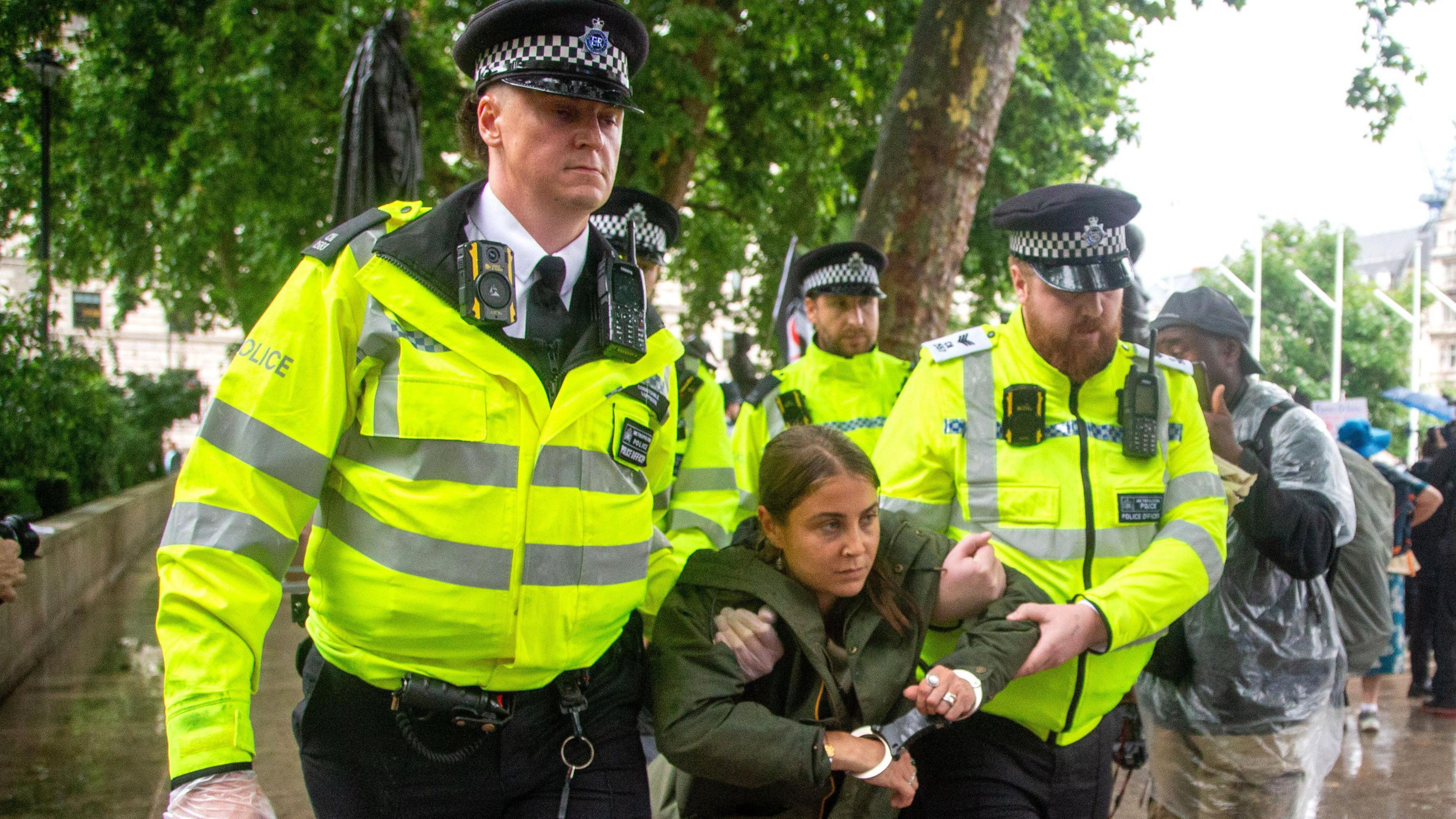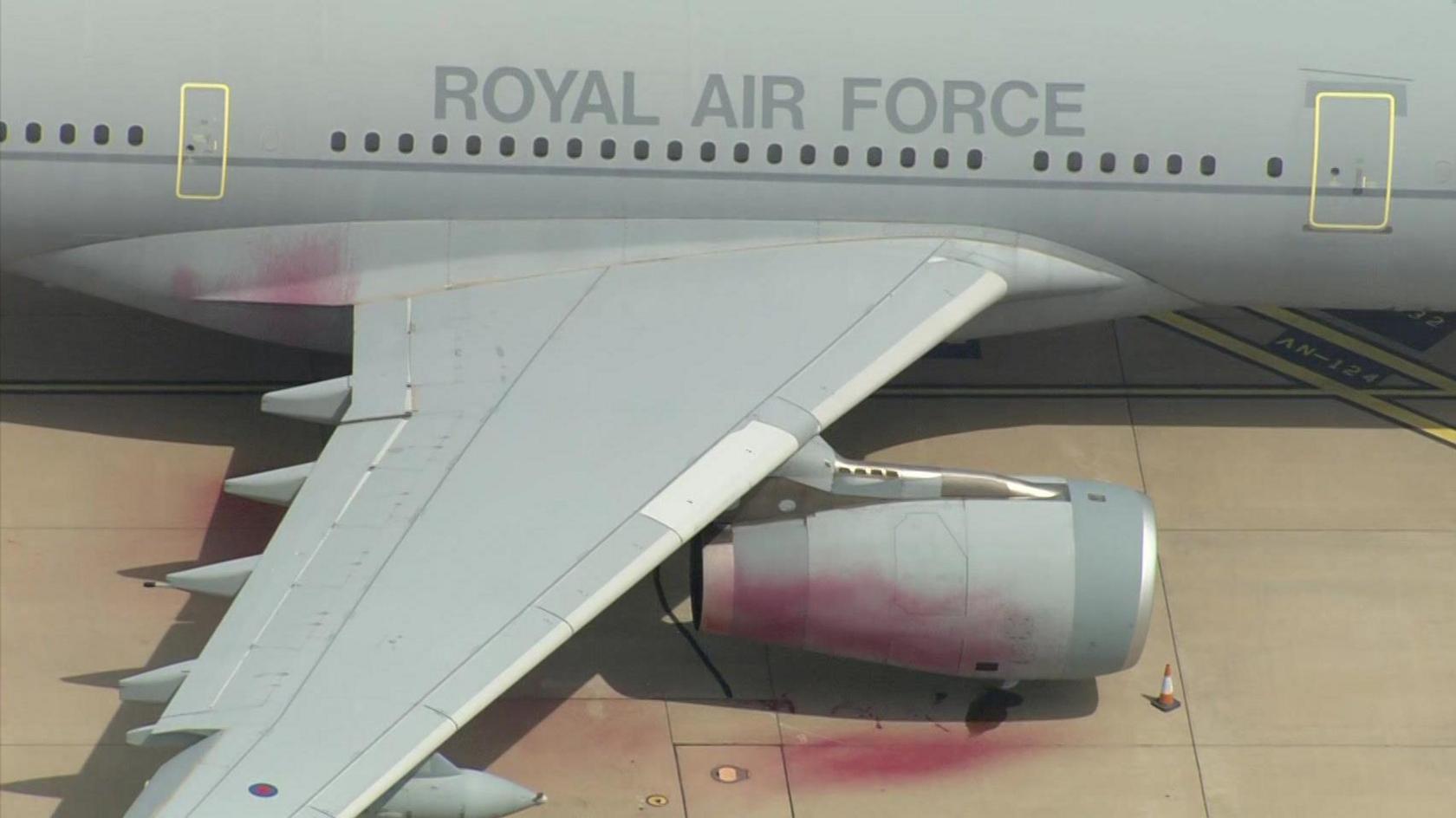UN human rights chief criticises UK Palestine Action ban

More than 170 people have been arrested since ban came into force
- Published
The UK government's ban on Palestine Action is a "disturbing" misuse of counter-terrorism legislation, the United Nations' human rights chief has warned.
Volker Turk urged the government to lift the ban on the group, calling it "disproportionate and unnecessary."
Earlier this month, Palestine Action was proscribed by the UK Government under the Terrorism Act 2000 after activists claimed responsibility for spraying two military aircraft with red paint causing an estimated £7m worth of damage.
The decision is currently being challenged in the High Court with a judgment due at the end of the month. The Home Office has been contacted for a comment.
Palestine Action ban 'abuse of power', court told
- Published21 July
Starmer under pressure to recognise Palestinian statehood
- Published25 July
The ban means that membership of, or support for, Palestine Action is now a criminal offence punishable by up to 14 years in prison.
More than 170 people have been arrested since the ban was introduced, under the Terrorism Act of 2000.
Turk, who has been the UN's high commissioner for human rights since 2022, said the ban "appears disproportionate and unnecessary".
"It limits the rights of many people involved with and supportive of Palestine Action who have not themselves engaged in any underlying criminal activity but rather exercised their rights to freedom of expression, peaceful assembly and association," Turk said.
"As such, it appears to constitute an impermissible restriction on those rights that is at odds with the UK's obligations under international human rights law."
Security Minister Dan Jarvis said that "protest in support of Palestinians, waving a Palestine flag or expressing views about the current, horrifying situation in Gaza is lawful.
"The proscription order is specific to the support of Palestine Action only, which has orchestrated a campaign of criminality on Britain's streets, including attacks on national security infrastructure."
Palestine Action has engaged in activities that have predominantly targeted arms companies since the start of the current war in Gaza.
Parliament approved plans to ban the group on 2 July after activists broke into RAF Brize Norton in Oxfordshire and spray painted two Voyager aircraft which the organisation said were used to provide support to the Israeli military.
A series of criminal prosecutions relating to incidents between 2022 and 2024 are currently before courts. Four people accused of the Brize Norton incident face trial more than a year from now.

Turk also criticised the UK's "broad" definition of terrorism, which covers "serious damage to property".
Under "international standards" terrorist acts "should be confined to criminal acts intended to cause death or serious injury or to the taking of hostages, for purpose of intimidating a population or to compel a government to take a certain action or not," Turk said.
"It misuses the gravity and impact of terrorism to expand it beyond those clear boundaries, to encompass further conduct that is already criminal under the law," he added.

Sign up for our Politics Essential newsletter to keep up with the inner workings of Westminster and beyond.